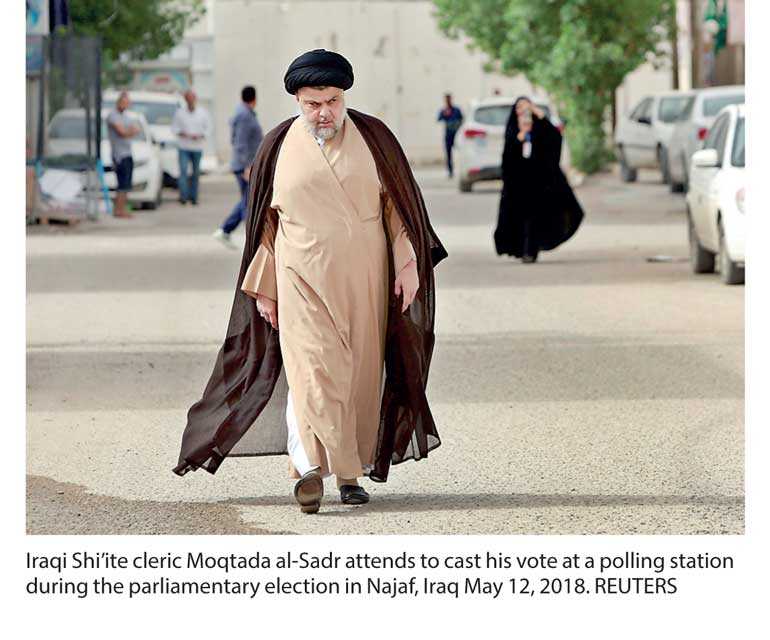Saturday Feb 21, 2026
Saturday Feb 21, 2026
Wednesday, 16 May 2018 00:00 - - {{hitsCtrl.values.hits}}
 Baghdad (Reuters): Already pressured by the U.S. withdrawal from the nuclear deal, Iran faces a major test in managing Shi’ite cleric Moqtada al-Sadr, a formidable opponent who beat Tehran’s longtime allies to achieve a shock victory in Iraq’s parliamentary election.
Baghdad (Reuters): Already pressured by the U.S. withdrawal from the nuclear deal, Iran faces a major test in managing Shi’ite cleric Moqtada al-Sadr, a formidable opponent who beat Tehran’s longtime allies to achieve a shock victory in Iraq’s parliamentary election.
But if Tehran overplays its hand by squeezing Sadr out of a coalition government dominated by its allies, it risks losing influence by provoking conflict between Iranian-backed Shi’ites and those loyal to Sadr.
Populist Sadr swept Iraq’s parliamentary election by tapping into growing public resentment directed at Iran and what some voters say is a corrupt political elite that has failed to help the poor.
But Iran is unlikely to relinquish influence in Iraq, its most important ally in the Middle East, and will push for a coalition that will preserve its interests.
“Iran will do everything in its power to remain strong in Iraq and to apply pressure,” said independent Iraqi analyst Wathiq al-Hashimi. “It’s a very critical situation.”
Before the election, Iran publicly stated it would not allow Sadr’s bloc - an unlikely alliance of Shi’tes, communists and other secular groups - to govern.
For his part, Sadr has made clear he is unwilling to compromise with Iran by forming a coalition with its main allies, Hadi al-Amiri, leader of the Badr paramilitary group and perhaps the most powerful man in Iraq, and former prime minister Nuri al-Maliki.
After the election results were announced, he said he would only cooperate with Prime Minister Haider al-Abadi, Kurds and Sunnis.